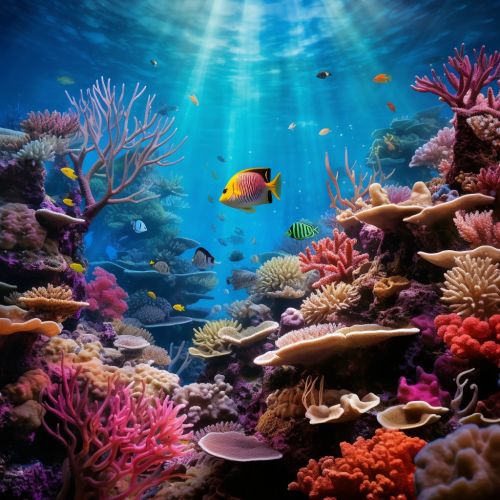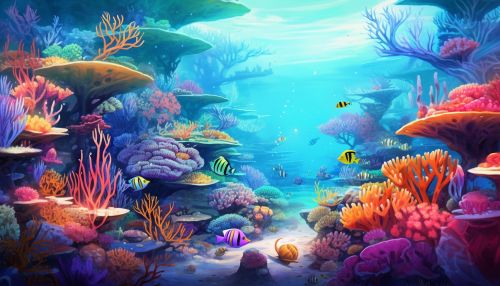The Evolution of Coral Reef Ecosystems
Introduction
Coral reef ecosystems are complex, diverse, and delicate structures that are home to an array of marine life. The coral reef is a unique marine ecosystem that has evolved over millions of years, adapting to changes in the environment and climate. These ecosystems are not only essential for the survival of many marine species, but they also provide significant economic and environmental benefits to humans.


Evolution of Coral Reefs
The evolution of coral reefs is a fascinating journey that spans over 500 million years. The earliest known corals appeared during the Cambrian period, around 542 million years ago. These early corals were solitary organisms, unlike the colonial corals we see today.
The first significant shift in coral reef evolution occurred during the Ordovician period, around 488 million years ago. During this period, corals began to form colonies, leading to the development of the first coral reefs.
The Devonian period, often referred to as the "Age of Fish", saw the emergence of the first modern coral reefs. These reefs were dominated by tabulate and rugose corals, which formed extensive reef systems.
The Permian-Triassic extinction event, which occurred around 252 million years ago, had a significant impact on coral reefs. This event led to the extinction of tabulate and rugose corals, marking the end of Paleozoic coral reefs.
The Mesozoic era, which spans from 252 to 66 million years ago, witnessed the emergence of the Scleractinian, or stony corals. These corals are the ancestors of the modern corals we see today.
Modern Coral Reefs
Modern coral reefs began to form around 240 million years ago. These reefs are dominated by Scleractinian corals, which have a unique ability to secrete calcium carbonate. This ability allows them to build the large, complex structures that characterize modern coral reefs.
The evolution of modern coral reefs has been influenced by several factors, including changes in sea level, climate, and ocean chemistry. These factors have shaped the distribution, diversity, and structure of coral reefs.
Coral Reef Biodiversity
Coral reefs are among the most biodiverse ecosystems on the planet. They are home to thousands of species of fish, invertebrates, and plants. This biodiversity is a result of the complex interactions between the coral, the organisms that inhabit the reef, and the surrounding environment.
The biodiversity of coral reefs is not evenly distributed. Some areas, such as the Coral Triangle in Southeast Asia, are hotspots of coral reef biodiversity. These areas are home to a disproportionately high number of species, making them critical for the conservation of coral reef biodiversity.
Threats to Coral Reefs
Coral reefs are facing numerous threats, including climate change, overfishing, and pollution. These threats have led to significant declines in coral reef health and biodiversity.
Climate change is perhaps the most significant threat to coral reefs. Rising sea temperatures can lead to coral bleaching, a process that can kill corals and disrupt the balance of the reef ecosystem.
Overfishing can also have a significant impact on coral reefs. Overfishing can deplete key species, disrupting the balance of the ecosystem and leading to declines in coral health.
Pollution, particularly from land-based sources, can also harm coral reefs. Nutrient runoff from agriculture can lead to algal blooms, which can smother corals and deplete the water of oxygen.
Conservation of Coral Reefs
Conservation efforts are critical to the survival of coral reefs. These efforts include the establishment of marine protected areas, the implementation of sustainable fishing practices, and the reduction of greenhouse gas emissions.
Research is also a crucial component of coral reef conservation. Scientists are studying coral reefs to understand their ecology, monitor their health, and develop strategies to protect them.
